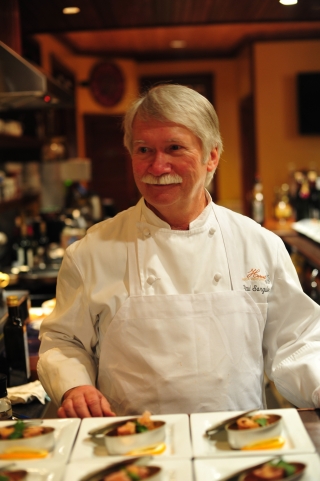
The Host’s Hospitable Handshake
01 February 2023Building a hospitality culture from the top down helps culinary programs reach exceptional status.
By Paul Sorgule, MS, AAC
Feedback & comments: This email address is being protected from spambots. You need JavaScript enabled to view it.
I have often wondered why some restaurants succeed where others do not. The obvious answers might be food quality and consistency, friendly and efficient service, location, or even pricing structure. The same question can be applied to culinary programs where the answer might be curriculum content, instruction quality, location, facilities, or pricing structure. In both cases, I have theorized that the answer may not be that obvious. Could it be the real differentiator is hospitality? Is this the key to real value?
Ironically, hospitality is our business. We may label it the restaurant business, the business of food, education, training, career development, or simply “nourishment.” But the secret ingredient, the difference between success and failure, is how we make people feel. Welcoming people into our businesses, caring about their experience, and treating them with respect - whether in a restaurant or classroom - is and must be a primary objective.
I once was chastised by a board member in an organization for referring to students as customers. Just like those guests who choose to patronize a restaurant, a student who chooses to be part of your program has expectations. They want a gratifying experience, a focused and demanding program, caring and patient teachers and a positive outcome. This means the school should work to meet and exceed reasonable student expectations. Just like hosts try to meet and exceed guests’ expectations. Hospitality doesn’t change simply because the venue, product or service is different.
We initially patronize a restaurant because of its reputation for delicious food and perhaps unique location, but we return because of how we were treated. Guests return because Joe or Julie greet them with a hospitable handshake, warm smile and sincere interest in making them happy. To do this, the host does everything in his or her power to make sure the details are attended to. Mistakes happen and when they do a host’s job is to exceed expectations through how it is resolved. Why would it be any different in a school where hospitality is the core of its mission?
The initial responsibility to set the stage for a culture of hospitality that makes the operation magnetic falls to the owner/operator or program director/dean. The host in the restaurant must be able to trust that the server, bartender, chef, cook, and valet are just as committed to the guest experience if hospitality is to work. The host sets the stage and the team executes.
In a school it may be the director or dean who sets the stage. The program will shine and find ultimate success through the training and resulting commitment from instructors, support staff and other department heads. When the focus on caring exists, the curriculum content is delivered at the highest level, students are pushed to reach their potential and assessment zeros in on how students reach an understanding and competence. This will set the stage for a student’s successful career. This is how a program reaches the exceptional status.
It may very well be time to take a hard look at the hospitality environment we offer and how we bring all stakeholders under the umbrella of a hospitality culture. This is food for thought.
PLAN BETTER – TRAIN HARDER
Paul Sorgule, MS, AAC, president of Harvest America Ventures, a mobile restaurant incubator based in Saranac Lake, N.Y., is the former vice president of New England Culinary Institute and a former dean at Paul Smith’s College. Contact him at This email address is being protected from spambots. You need JavaScript enabled to view it..
